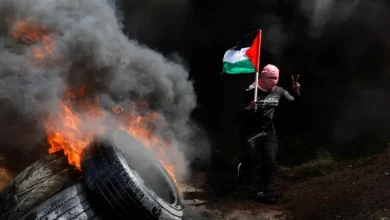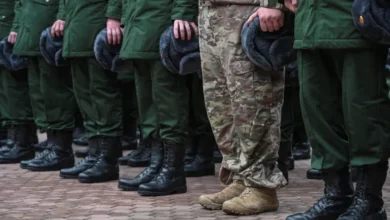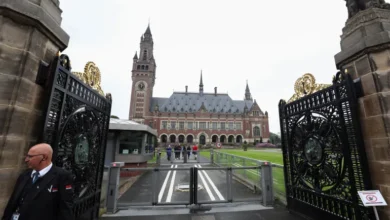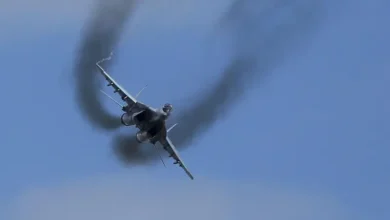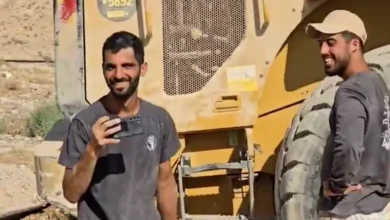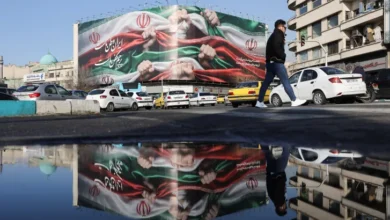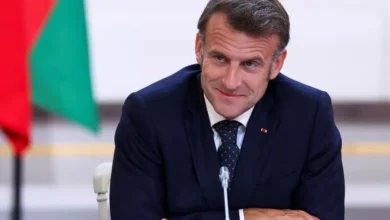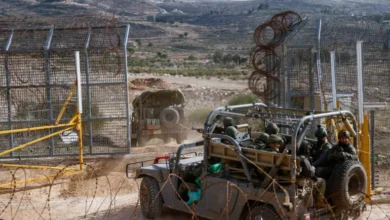Maldives ruling party holds high-stakes presidential primary
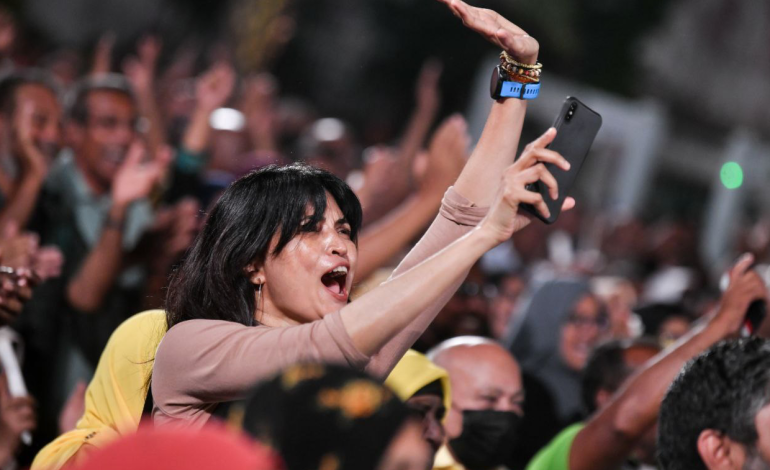
The Maldives’s governing party is set to hold a primary that is pitting incumbent President Ibrahim Mohamed Solih against his former ally and the nation’s first democratically-elected leader, Mohamed Nasheed.
The closely fought election on Saturday follows a bitter campaign, with Nasheed framing the poll as a choice between autocracy and democracy, and accusing Solih of vote rigging and bribery — allegations he denies.
Enmity between the two has raised concerns of new turmoil in the popular Indian Ocean tourist destination, four years after Maldivians voted out former President Abdulla Yameen, who had overseen a wide-ranging crackdown on dissent, including by jailing or forcing into exile nearly all of his political rivals, arresting Supreme Court judges, and shuttering critical and independent media.
Some also fear the vote could split the governing Maldivian Democratic Party (MDP) ahead of September’s presidential election, as Nasheed has yet to state — even when pushed by reporters — whether he would back Solih if he were to lose.
“The Maldives has never seen a more contentious primary,” wrote Fazeena Ahmed, editor at Mihaaru, a prominent news site. “Both Nasheed and Solih’s campaign teams have crossed the red line,” she said.
Mudslinging and relentless insults mean “the two sides are now at a point where it is unclear if they will be able to unite and work together for the upcoming presidential election”, Ahmed added.
‘Real MDP’
For Nasheed, his political future hangs in the balance.
Considered an icon of democracy for his lifelong campaign for multiparty politics in the Maldives, Nasheed, 55, has seen his political star wane since Solih, 60, assumed the presidency in 2018. The bitter rivalry between the childhood friends, who are also related by marriage, began earlier that year when the MDP’s top decision-making body decided to transfer the party’s presidential ticket from Nasheed to Solih. At the time, party officials feared the MDP would be left without a presidential candidate as Nasheed was being prevented from contesting the election because of a trumped-up “terrorism” conviction.
Living in exile at the time and left with little choice, Nasheed, who had previously served as president from 2008-2012, acquiesced to Solih’s candidacy.
And Solih — backed by the MDP as well as a coalition of disparate opposition parties — went on to defeat Yameen by a landslide.
Within months of his election defeat, Yameen was jailed on money laundering and corruption charges.
But it was Nasheed who emerged as Solih’s biggest critic.
Elected as parliament speaker in 2019, Nasheed used his podium to lambast the president for his alleged failure to take action on the Maldives’s biggest-ever corruption scandal, pointing out that only Yameen had so far been jailed over the theft of some $79m in state funds from tourism leases. He also slammed Solih’s alleged inaction against violent groups affiliated with al-Qaeda and ISIL (ISIS). Animosity gradually escalated, resulting in members of Nasheed and Solih’s family publicly taking sides. It then broke out into open hostility when the speaker was targeted in a bomb attack in the capital, Male, in May of 2021.
Nasheed survived, albeit narrowly.
The police blamed “extremist” religious groups, but some of Nasheed’s supporters — alleging security lapses — held the government equally responsible.
All the while, Solih has gradually consolidated his power within the coalition that brought him to power and tightened his grip on the MDP.
Some of Nasheed’s closest aides, such as legislator Hisaan Hussain and Environment Minister Aminath Shauna, have sided with Solih, while the president’s candidates have won nearly every internal vote in recent years, including a hotly-contested election for the party’s chairmanship last year.
He also looked set to win the MDP’s presidential ticket without a contest — until his estranged friend announced his intention to run at the last minute.
Nasheed’s entry has now electrified the primary.
Running under the slogan “Revival of a creed”, Nasheed has crisscrossed the island nation over the past month, mobilising ever larger crowds with promises to end corruption, tackle rising costs of living, and reverse tax hikes introduced by Solih’s government. He has also accused Solih of bribing voters and bringing back autocracy, including depriving tens of thousands of MDP members of the right to vote and reviving a culture of citizens having to beg government ministers and legislators for public services and infrastructure.
“We are the real MDP,” Nasheed told a campaign rally on Thursday. “We are concerned that this government is enacting policies that are alien to our ideology, and we are seeking to win this election in order to reclaim our party.”
Uncertainty
Solih’s campaign, however, has denied the allegations as “baseless”.
While 39,000 people were removed from the party’s nearly 100,000-strong member registry, the campaign has stressed this was done in line with electoral laws that require members to submit fingerprinted registration forms and said all those taken off the membership list were given the opportunity to re-register. Now, some 57,255 members will be allowed to vote in Saturday’s ballot.
“We believe what Nasheed is doing is casting a shadow on the process because he also realises the overwhelming support the president enjoys,” a spokesperson for Solih told Al Jazeera.
Indeed, Solih, too, has drawn equally large — though quieter — crowds.
The president, whose slogan is “Onwards”, is campaigning on a platform of ensuring stability.
Most of all, he has touted his ability to hold the ruling coalition together, saying the backing of the smaller parties will be crucial for MDP to win the majority of the vote in the presidential election.
“MDP is the biggest, and most popular party,” Solih told a large crowd at a campaign rally on Thursday. “But every MDP member knows that in order to win a presidential election, we have to win more than 50 percent of the vote. And they know, this will be difficult for MDP alone to achieve right now.”
Among the president’s supporters at the rally was Adam Zakariyya, a taxi driver who said Solih deserves a “chance to finish everything he has started” and praised the president for successfully steering the Maldives through the COVID-19 pandemic.
Hafeeza Azhar, a 25-year-old Solih supporter, also said the president deserved a second term. She said she was backing Solih because his government had introduced free university education, a policy that was allowing her to pursue a degree in marketing.
“Previously I was unable to go for higher studies because I had to earn money to support my parents. Now I am able to support my parents with a job while doing my degree for free,” she told Al Jazeera.
MDP members — in both Solih and Nasheed’s camps — said they hoped for unity after the primary, but concerns remain.
“There is a real possibility of unrest,” said one Maldivian journalist, who asked to remain anonymous. He pointed to Nasheed’s claims that many of the 39,000 names removed from the voter registry were his supporters and said some of those voters were likely to try and cast ballots on Saturday and cry foul if they were not allowed to do so.
“Given that so many of Nasheed’s supporters will be unable to vote, he is unlikely to win. But the margin will be much narrower than Solih anticipates,” the journalist said.
